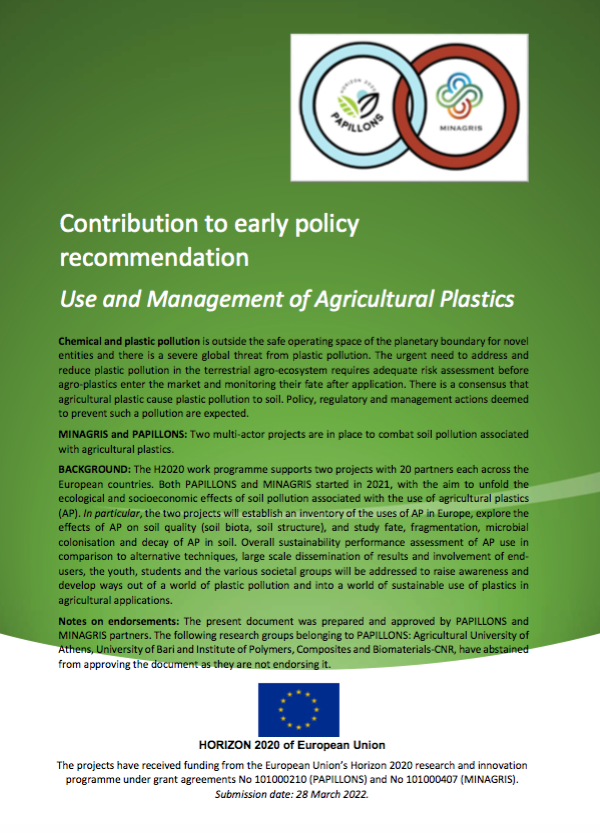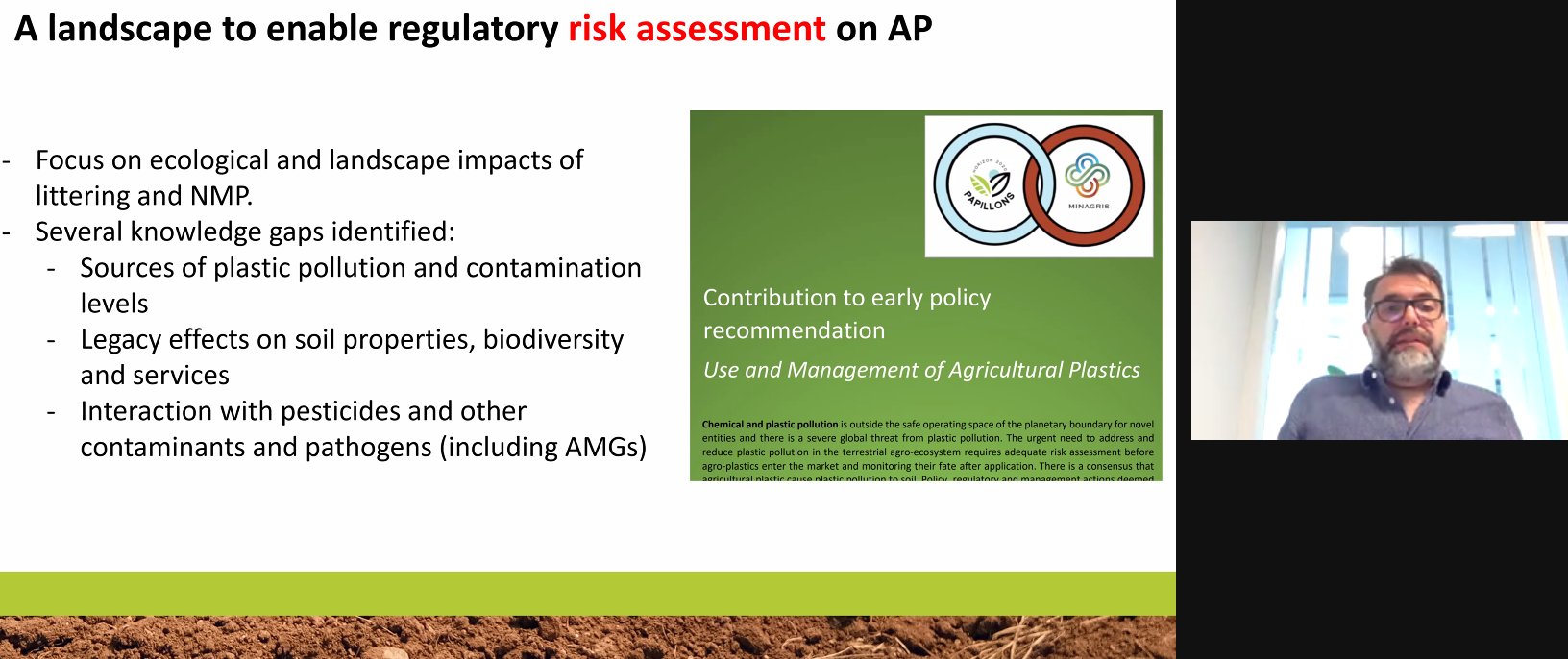While PAPILLONS and MINAGRIS started recently; however, with the expertise available in both project consortia and based on a first screening of knowledge gaps in relation to agricultural plastic pollution of agricultural soils, we are already able to outline preliminary policy recommendations – both knowledge gaps and policy recommendations will be refined and backed up based on a concerted and aligned scientific effort in both projects – will yield a concrete set of actionable policy recommendations by 2025 in support of the EU zero pollution strategy and new EFSA regulations for pre market procedures and the use of agroplastics.
The final version of PAPILLONS-MINAGRIS contribution to policy recommendations on agricultural plastics is downloadable here
The final version of the documents include minor clarifications to specific points posed during the interaction with the stakeholders. For the sake of transparency a version with tracked changes is also available.

